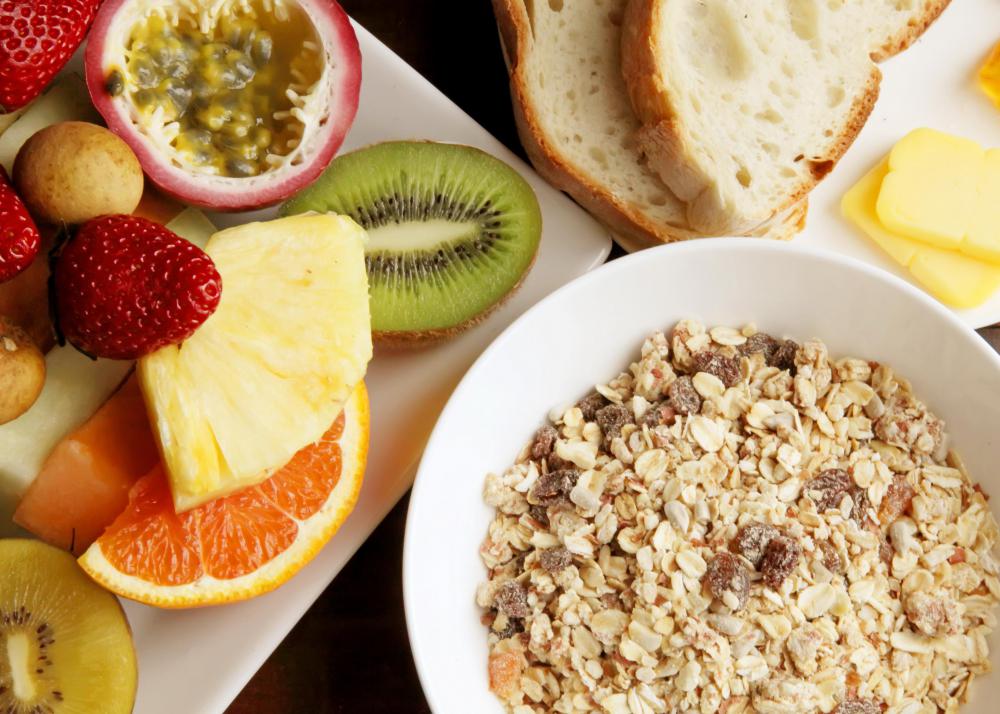At WiseGEEK, we're committed to delivering accurate, trustworthy information. Our expert-authored content is rigorously fact-checked and sourced from credible authorities. Discover how we uphold the highest standards in providing you with reliable knowledge.
What Are the Benefits of a Vegan Diet?
Vegan practitioners do not consume animals of any kind. The vegan diet focuses more on legumes, fruits, vegetables, and grains. The benefits of following a vegan diet has been connected to lower saturated fat consumption, healthy amounts of fiber and vitamins, a smaller waistline, and improving the overall health of the planet.
The benefits of a vegan diet have been connected to lower saturated fat in the body. Many dairy products and meats tend to have high levels of saturated fat, which is connected to a number of cardiovascular ailments. A person following a vegan diet tends to replace these protein sources with healthier sources, like nuts and legumes.

Fiber makes up a large portion of a vegan’s diet. Fibrous grains and greens help promote healthy bowel movements. The benefits of a vegan diet have been known to improve a person’s consumption of fiber, helping to ward off stomach cramps and even colon cancer.
A diet that is chock full of greens is known to be connected with healthy levels of beneficial vitamins. A large consumption of vitamins E and C tends to be connected with a vegan diet. Vitamin C helps to facilitate the healing of damaged tissue, while vitamin E has been known to improve eye functions, as well as help to ward off the onset of Alzheimer’s disease. These vitamins are also known to deliver antioxidants, which aid in the nullification of the damaging accumulation of free radicals.

Benefits of a vegan diet are not only connected to ample amounts of beneficial vitamins, but it is also known to facilitate the consumption of phytochemicals. Phytochemicals are organic compounds created by plants. Consuming phytochemicals has been linked to cancer prevention, to promotion of beneficial enzymes, and to increasing the efficacy of vitamins and antioxidants.
Vegans are also known to have a lower body fat percentage than individuals who consume a meat-based diet. Pound for pound, vegetables, fruits, and legumes have a lower caloric footprint when compared to meat. The very nature of a vegan diet facilitates the consumption of less calories, which promotes weight loss.
Those who choose to stick to a vegan diet are also connected to increasing the overall health of the planet. The manufacturing of fruits and vegetables tends to have a smaller environmental footprint than the meat industry. The benefits of a vegan diet are not only connected to better health, but are also known to promote a healthy planet.
AS FEATURED ON:
AS FEATURED ON:












Discuss this Article
Post your comments